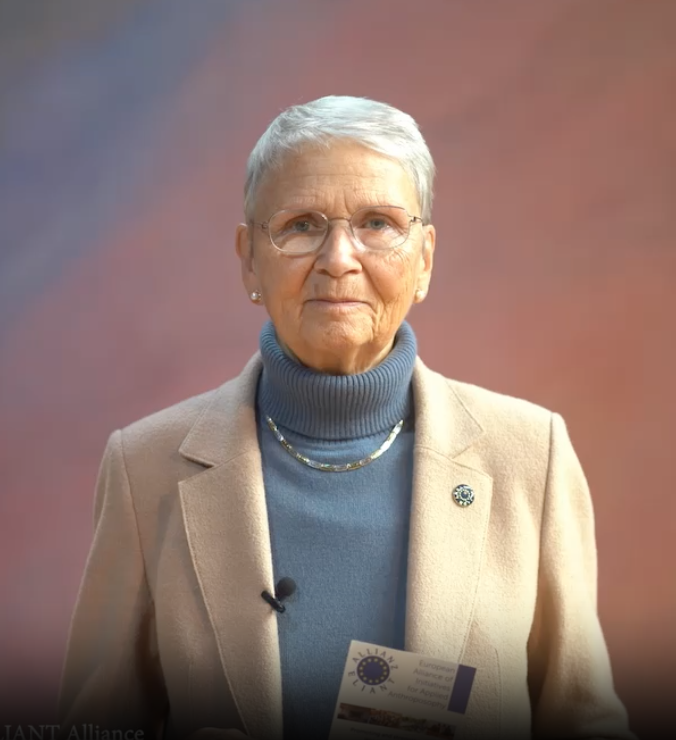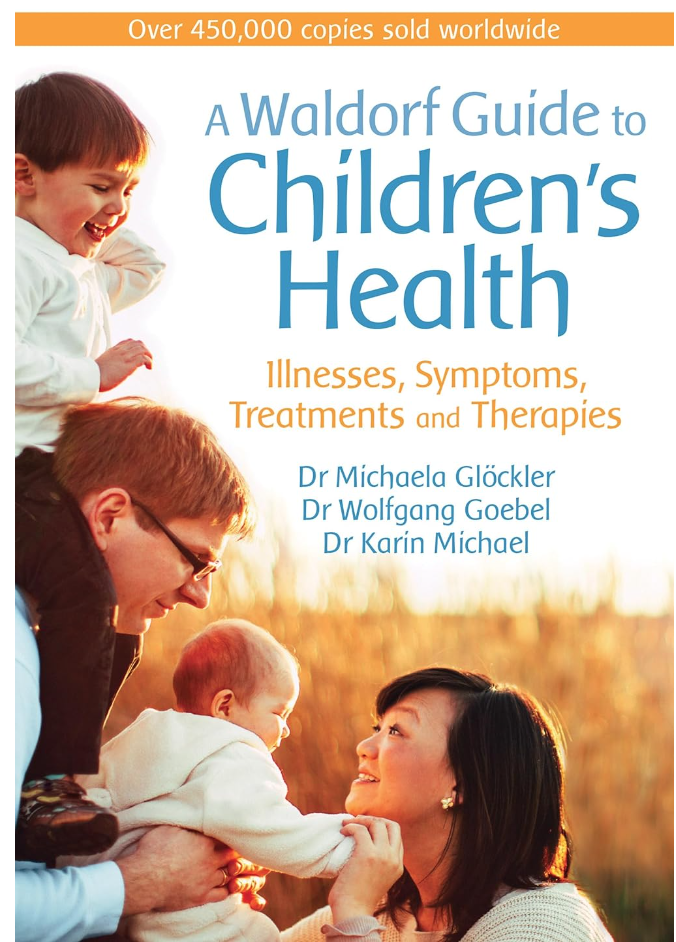Waldorf Education and Anthroposophy may be unfamiliar subjects, but nonetheless are very pertinent to modern times.
The Society of Homeopaths was honoured to listen to pediatrician Dr Micheala Glöckler at their recent conference in London.

German born Dr Glöckler now lives in Switzerland and has a deep passion for Applied Anthroposophy and the availability of choice and cultural diversity.
Anthroposophy (Anthro-po-sophy) is a philosophical system associated with polymath Dr Rudolf Steiner (1861-1925). The word means human (anthropos) wisdom (sophia).
Steiner had great respect for Dr Samuel Hahnemann (1755-1843) who documented the principles of Homeopathic Medicine. Indeed Anthroposophic medicines are low potency homeopathic preparations. In the UK, Weleda is one well know name in the manufacture of both homeopathic and anthroposophic medicines.
While writing this blog, I found a interesting (but quite long) article comparing Steiner’s work and Homeopathy.
Dr Glöckler spoke with great passion through the morning session, almost without notes, surely challenge enough, without that of speaking in a foreign language. Gut gemacht!
Waldorf Education follows the Anthroposophy of Rudolf Steiner. The name comes fom the town of Waldorf, a town near Stuttgart.
Wikipedia gives a good overview. Do bear in mind that the Wikipedia perspective is coloured by their philosophy which is not as definitive as they would like you to believe.
Children according to Steiner-Waldorf teaching, learn in three ways: imitation; experience (often painful); and, insight or understanding. Education should be age appropriate.
Education should also be in the real – not the digital world – and that real world incorporates an awareness of Higher Worlds (i.e. the spiritual).
Dr Glöckler warned us not to delegate our potential (or consciousness) to the internet; to do so risks delegation to the State and potentially the control the powerful and often negative forces.
Healthy learning is active (analogue) not passive (digital). Ultimately what we truly understand is self-education.
She moved on to consider in closer detail a child’s development. There are three seven year cycles: first (0-7) brain, then emotional (8-14); and finally consciousness and responsibility (15-21).
As a aside (but relevant) children’s author Michael Morpurgo also had something to say on the value of early years education on the BBC yesterday.
Having been a school governor for almost twenty years, I can say that national curriculums and such like are eternal subjects of debate. The rise in home schooling rather demonstrates the dissatisfaction with a one size fits all view-point.
All across Europe – and even in land of her birth – mainstream medicine increasingly denies the teachings of Hahnemann and Steiner. The reason, Dr Glöckler explained, is a failure to understand the working principles. At the core is a battle of philosophies: the technology focused trans-humanistic view versus the spiritual path.
Each human being has its unique spiritual destiny which is ignored at our peril. She urged everyone to campaign for the legal status of integrative medicine (see https://eliant.eu/en/).
Modern medicine, for all its benefits, focuses solely on the physical body. This approach is wonderful in emergency medicine, when life is threatened. However the nature of disease – or better ‘dis-ease’ – is much more complex. Your physical symptoms can have roots in anything from infection, through emotional issues to your genetic inheritance.
The book shown below provides some excellent guidance on how parents and carers can treat illnesses and guide their children.

Dr Glöckler coined the term ‘deficitarian’, stimulating the ‘little grey cells’ of the audience to action!
The underlying philosophy of Waldorf Education and Anthroposophy recognises that humans are not perfect by nature; this is both our deficit (hence ‘deficitarian’) and our catalyst to growth. The ‘deficit’ then, is the gap between what we are and what we must become.
Life, health and illness extend beyond the domain of modern medicine with its physical / material focus. Life is neither visible nor material. Illness may be inconvenient, but it is also a rebalancing process and necessary for long term health (hence a child’s fever is ‘healthy’).
As humans we live in constant interaction with our environment – from the microcosm (e.g. microbiome) to macrocosm (e.g. cosmos). A focus on the physical body alone denies the constant interplay between that body (mostly water) with its metabolism (warmth driven), and the immaterial etheric (life force), astral (emotional) and thought processes. Ultimately, we live a life of thoughts.
Dr Glöckler retold a story about Paracelsus a notable 16th century Swiss physician. He, together with five other medical men, discuss the cause of death of a man during a cholera epidemic (but substitute any disease you like). In abbreviated form the story goes thus:
The question is, ‘Why did the patient die’?
The first doctor says: ‘It is the [cholera] bacteria that caused the death – obvioulsy the patient died of cholera’
The second doctor responds: ‘As only 10% of those infected from the contaminated water died, you cannot say this. The death could be due to poor natural immunity’.
The third doctor says: ‘Positive feelings strengthen the immune system, and negative weaken. The patient was frustrated in his soul and was not in balance. This is the cause.’
The fourth doctor says: ‘All well and good, but actually the patient’s ego (spiritual identity) was weak, thus his tolerance of frustration was undermined. At the core, this is why he died.’
The fifth doctor then chips in: ‘I looked up the astrological tables; the stars point to a lethal crisis. His life was over, it was his time to die.’
Everyone now looks to Paracelsus, who smiles and says: ‘You are all correct, there are five causes of illness and five ways to health. A good doctor must know all of them equally well and walk with each person the most promising path to healing.’
In this parable, Paracelsus demonstrates the complexity of the human constitution.
Homeopathy is (w)holistic medicine, its consideration goes much further that the orthodox diagnosis.
The latter has value in determining the trajectory of the ailment and the urgency of intervention. However, all too often the outcome is management of symptoms and a failure to consider the underlying cause.
For this reason the initial homeopathic consultation takes time. Its purpose is to try and reveal the underlying cause and reestablish harmony in the body.
I recall one case when attending the International Academy of Classical Homeopathy in Greece, where a patient’s problems originated some decades in the past. The lady had suffered physical assault from her father or step-father. The college principal, Prof. Vithoulkas, opened with the remedy Arnica – a remedy know for repair of deep bruising. Why? Because the body had held that memory.
If you judge you have never been well since some event in the past, physical or emotional, and would like to find out whether homeopathy might help you, please book a discovery call via my website.